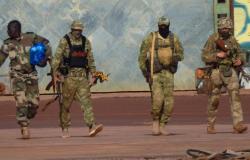The South Korean won skidded on Tuesday after the proclamation of martial law by President Yoon Suk Yeol, immediately invalidated by the National Assembly but which plunged the country into uncertainty. Around 8 p.m. in France, the Asian currency dropped 1.55% against the greenback, to 1,428.29 won per dollar.
Earlier, it fell to 1,444.09 won, the first time since October 2022 and a breath away from a 15-year low of 1,444.78. Yoon Suk Yeol explained that his decision was aimed at “protect” his country of “North Korean communist forces and eliminate elements hostile to the state”. In his sights, the opposition, in particular the Democratic Party (DPK), which has a majority in the National Assembly and which he accuses of having “paralyzed the government”.
In recent months, the opposition has initiated multiple impeachment procedures targeting members of the government and the president himself, accused in particular of corruption. She has also organized massive demonstrations in recent days, among other things to demand the appointment of a special prosecutor responsible for investigating a case of stock market manipulation involving the First Lady, Kim Keon Hee.
Also read
South Korea: President declares martial law, army says it will “enforce” it
“Uncertain situation”
Despite the closure of the National Assembly building by the army, some 190 deputies (out of 300) managed to sit on Tuesday and voted unanimously to lift martial law, which they are authorized to do. the Constitution. After this vote, the Ministry of Defense nevertheless indicated that martial law would remain in force and that it was up to President Yoon alone to repeal it.
“The situation is still uncertain”commented Marc Chandler, of Bannockburn Global Forex, which continued to weigh on the won, which only partially recovered after the invalidation by the Assembly. Even before this development, the won was already in bad shape, undermined by a clear deceleration of inflation in South Korea and the choice of monetary easing by the central bank (BOK).
After a first reduction in October, the BOK surprised by again cutting its main key rate on Thursday to 3%, in an attempt to revive its economy, against a backdrop of sluggish domestic demand and a slowdown in exports. For Pantheon Macroeconomics analysts, the institution chose “to give priority to growth and is ready to tolerate a depreciation of its currency”. Even before the proclamation of martial law, “the won was already the most fragile currency in Asia”insisted Marc Chandler, for whom the currency should remain under pressure.






